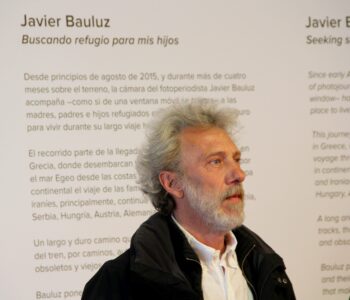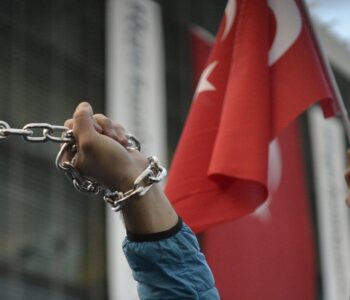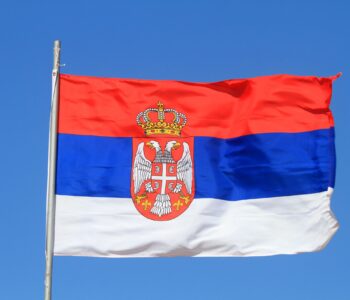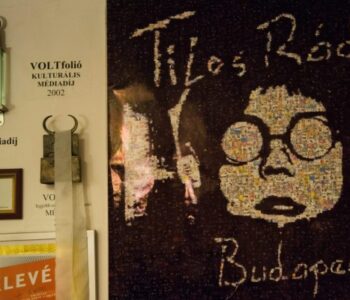
Czech Republic: MFRR pushes for reforms to strengthen independence…
Czech Republic: MFRR pushes for reforms to strengthen independence of public broadcaster
Representatives from the International Press Institute (IPI) and European Centre for Press and Media Freedom (ECPMF) travelled to Prague on Wednesday June 15 to meet with officials from the Ministry of Culture and push for the development of reforms which strengthen the independence of the country’s public broadcaster.
During the one-day visit, the delegation met with journalists and editors from independent media, representatives from the Endowment Fund for Independent Journalism (NFNZ), the director general of the Czech Television Petr Dvořák, and representatives from the Ministry of Culture under the new coalition government of Petr Fiala.
Discussions centred around the preparation of draft amendments aimed at creating additional safeguards to protect the institutional and editorial independence of Czech Television, which faced sustained pressure under the former government led by Andrej Babiš.
During the meeting with the Ministry, it was confirmed to the delegation that progress had been made in negotiations regarding the amendments and that the cabinet is due to discuss a re-worked package of reforms this week, June 20-24.
The new package contains only a handful of the amendments initially proposed by civil society groups including the NFNZ and IPI CZ and which were supported by the organisations of the Media Freedom Rapid Response (MFRR). According to information provided to the delegation, the revised amendments will include:
- Changing the law so that both chambers of parliament, rather than just the Chamber of Deputies, will be involved in appointments to the Czech Television Council. This more staggered system is intended to make it more difficult for a government to use a parliamentary majority to overly politicise the composition of the council;
- Tightening the rules for who can nominate candidates for the CT Council. Under the proposed amendment, only established institutions with 10 years of experience in the fields such as media, culture or human rights would be permitted to nominate candidates;
- Removing the ability of parliament to reject the annual report of the public broadcaster, eliminating the ability of the parliament to twice reject the report and subsequently dismiss the entire CT Council;
- Increasing the number of councillors on the CT Council from 15 to 18. Under the draft, the Senate would vote for six and the Chamber of Deputies will appoint the other 12. A qualified majority of 10 would be needed to appoint and dismiss the director general.
As part of the initial reform package developed by the Ministry of Culture, when the amendments entered into force the entire CT Council would have been dismissed and elections would have been held under the new appointment system. However, the Legislative Council of the Government raised concerns about the legality of the move and a compromise was required, causing significant delays while coalition parties negotiated an alternative.
Under the rewritten plans, the number of councillors will instead be increased by three. In another shift, the Chamber of Deputies would elect two thirds of the councillors rather than the original proposed 50:50 split between the Chamber and the Senate.
If approved by the cabinet in June, the draft amendment would then need approval from the Chamber of Deputies and the Senate before being signed into law.
“It is uplifting to finally see progress made on the preparation of a new draft. While this new package contains only a fraction of the initial proposals, if passed these amendments would still have a significant impact and create additional safeguards against future attempts to undermine the independence of Czech Television”, said IPI Deputy Director Scott Griffen, who participated in the visit. “We urge the cabinet to swiftly approve this first package of reforms and send the package to parliament for a vote. It is vital that early momentum of improving the landscape for media freedom is not lost.
“However, this should be seen as a first step in a wider process of reform – one which must urgently include the provision of sustainable financing for Czech Television. The Czech public broadcaster has been, and remains, a standard bearer for other public service media in the region. Shoring up its financial stability and passing amendments which help future-proof the institution against political attacks would provide a much-needed example of resilience in central and eastern Europe. Our organisations will continue to closely follow the legislative process and push for additional needed improvements for media freedom in the coming months.”
During the meeting at the Ministry, the delegation was also informed that a working group is due to be established to discuss a second package of reforms to the Act on Czech Television and Czech Radio. This would include the proposal to legislate for automatic increases in the licence fee in line with inflation, as well as greater judicial oversight over dismissals of councillors and the creation of professional criteria for those seeking election to the CT Council. IPI strongly urged that this working group include independent national and international experts.
Coming in the wake of an announcement about forced cuts to budgets and staff numbers, a solution to the unsustainable financial situation at Czech Television is viewed by the delegation as essential in the coming months. In total, the broadcaster will be forced to cut 910 million crowns (€36.8 million) by 2024 and intends to axe its newest channel, ČT3. The license fee has not increased since 2008.
During the visit of the delegation to Prague, the delayed election for the CT Council was also held. After the governing coalition passed a motion for the vote to be made public, the opposition party boycotted the vote. Five new councillors were appointed, all of whom have suitable professional qualifications and expertise.
This mission was coordinated by the Media Freedom Rapid Response (MFRR), a Europe-wide mechanism which tracks, monitors and responds to violations of press and media freedom in EU Member States, Candidate Countries and Ukraine.











